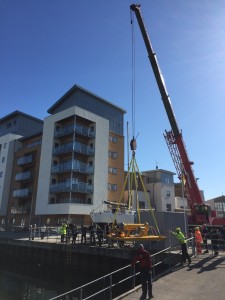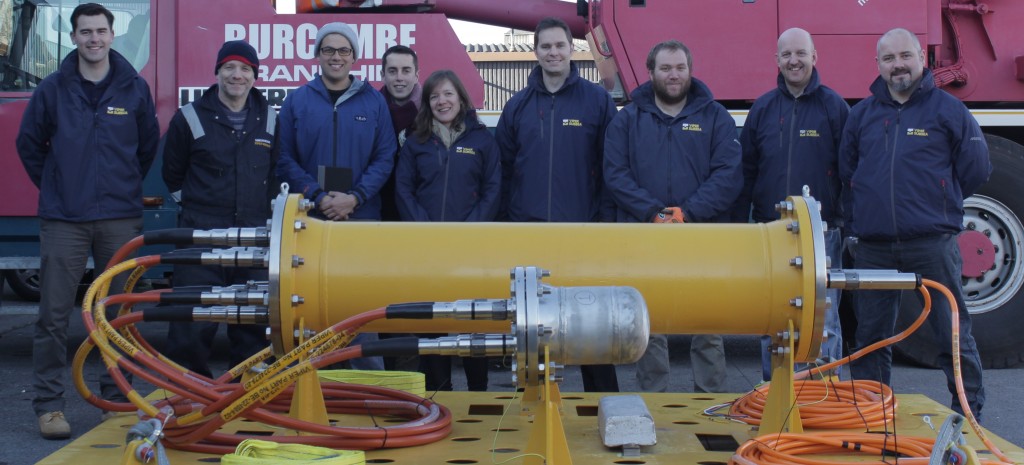Portishead may be a long way from the offshore oil fields of the Gulf of Mexico or the Persian Gulf but innovative subsea technology being trialled there could save the oil and gas industry millions of pounds in lost production.
Portishead-based engineering firm Viper Subsea, which supplies hi-tech equipment to the global oil and gas sector, has launched a shallow water trial of new technology it has developed to help locate electrical faults on subsea cabling.
The year-long trial of the V-IR system – which has been developed with the support of global giants Total, BP, Shell, and Chevron – started yesterday in Portishead Quays marina. 
During the initial three-month phase the V-IR technology suite will undergo communications and performance testing in the seawater marina where Viper has installed 2km of cables on its bed.
The main components are already designed for a depth of 3,000m. Following the trial there will be a period of further equipment qualification before the system is fully commercialised later this year.
Viper Subsea managing director Neil Douglas said: “Offshore oil and gas platforms are connected to underwater oil and gas production equipment with electrical cables. Failure of these connections occurs when seawater penetrates and contacts the electrical conductors. This can happen at any point on the cable length or in the plugs and sockets at either end.
“Seabed-located equipment needs to operate for the lifetime of the oilfield – typically 20 years or more – but when failures occur they can halt production. Identifying the exact location and nature of the failure is time consuming and difficult with existing technology. Recovery and repair of cables is fraught with risk and is very expensive.”
V-IR brings together products and services developed by Viper Subsea, and when integrated, create a system that provides a complete subsea system electrical integrity map. It will enable field operators to better plan for repair or replacement of failed components and potentially save the industry many millions of pounds lost when the faults halt production.
“The value of the system to the offshore oil and gas industry is illustrated by the backing and support we receive from major operators,” added Mr Douglas.
Viper Subsea was established in 2007 by Neil Douglas and Max Nodder and has since emerged as one of the world’s most innovative suppliers of products and services for the international offshore oil and gas industry. The firm employs 45 staff across its offices in Portishead and Aberdeen and has enjoyed year-on-year growth since foundation.
Its products, which span hydraulic, chemical, electrical and optical subsea distribution systems and equipment, are exported around the globe.
The firm also offers a range of engineering consultancy and asset integrity management services.
Pictured: Below, the Viper Subsea team with the V-IR before its trial and, above, the system being lowered into the marina































